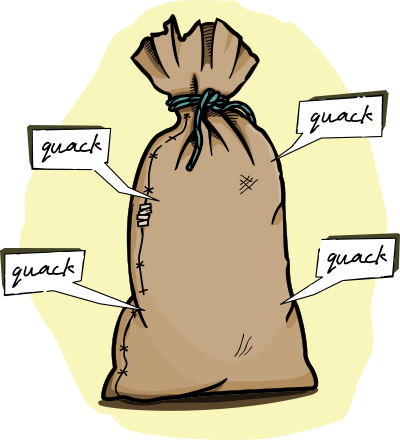Apart from publicly funded TV and radio channels, the importance of which we’ll consider later, media companies are always owned by hugely wealthy people. As a result of that the media works in the interests of the wealthiest members of our societies.
Their most important role is to generate and maintain division between the general population. The phrase “divide and rule” can be traced back at least as far the fourth century BCE during the rule of Philip II of Macedon. It’s longevity as a concept certain proof of its effectiveness. By dividing any enemy, we can make them weaker and in the eyes of the wealthiest in our societies, the general population are the enemy. Despite the fact we are the generators of their immense wealth, they still fear the people in case they should ever open their eyes and realise the wealthy have been screwing them over for eternity.
When was the last time you watched or read an opinion piece that deliberately and carefully considered both sides of an argument before sharing a thoughtful conclusion? Probably never, because the media pick a view and push it with all their might. They give you all the reasons and evidence that support their belief and ignore and hide any evidence that undermines or counters their argument. At the same time they attack opposing views and those sharing them, presenting a stark black and white view of a world that generally exists in shades of grey.
And we can always count on close relations between the media and politicians, with the media often moulding the way we think and effectively deciding which parties and politicians we vote for.
Most of us recognise that closeness and understand the general political leanings of different media outlets.
Despite that, however, many of us seem blind to how bias often shapes the news reporting we watch and read. That’s something we’ll consider more later as we look at how we can better assess the accuracy of the news presented to us.
For now, though, the focus is on how easily the media can divide us.
I guess you recognise “He that is without sin among you, let him first cast a stone at her”1 or something much like it, even if you’ve not read The Bible.
And probably “people who live in glass houses shouldn’t throw stones” is familiar to you.
Maybe even “before you start pointing fingers, make sure your hands are clean”.
That last one’s from Bob Marley2 and follows the same theme that we might not want to get too high and mighty about the behaviour of others if our own behaviour leaves anything to be desired.
There are many in the the media who deliberately make us do just that though. They seek to divide us by giving us sacrificial lambs to satisfy us and distract us from the selfish behaviour of those at the top of society.
We’re encouraged to look upon the wrong-steps of others as if we’re as pure as the driven snow and completely free of sin and to wholly condemn others for behaviour that’s often not too different to our own. They lead us along that path to outrage and indignation and we don’t stop to think “might we be just as culpable?” If we imagine ourselves or someone we like and admire in the same position, does the story feel very different to us?
I don’t mean for one second that bad behaviour, especially criminal behaviour, should be ignored just because we’re all prone to doing wrong.
Or that the media shouldn’t investigate and highlight illegal or unethical activities by those in the public eye.
But we need to be more discerning about what we want from them. Need to better understand the difference between what is in the public interest and what is just interesting to the public, something we’ll consider more deeply in Nowt Needier Than The Media.
Samuel Johnson, the 18th-century English writer said “God himself, sir, does not propose to judge man until the end of his days.”
Perhaps we should try to aspire to that too.
